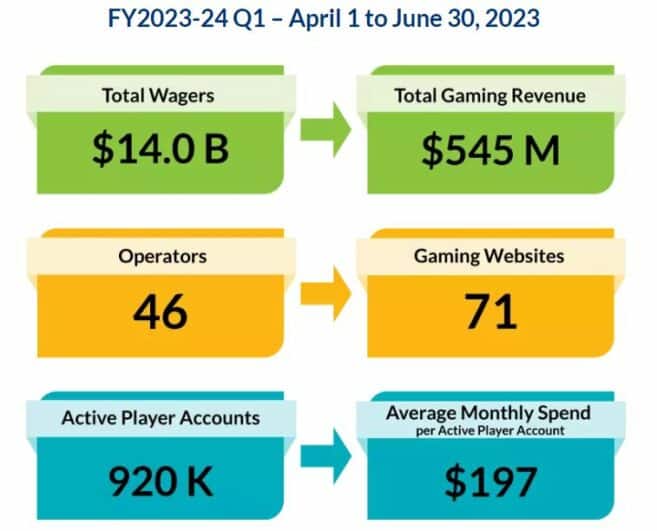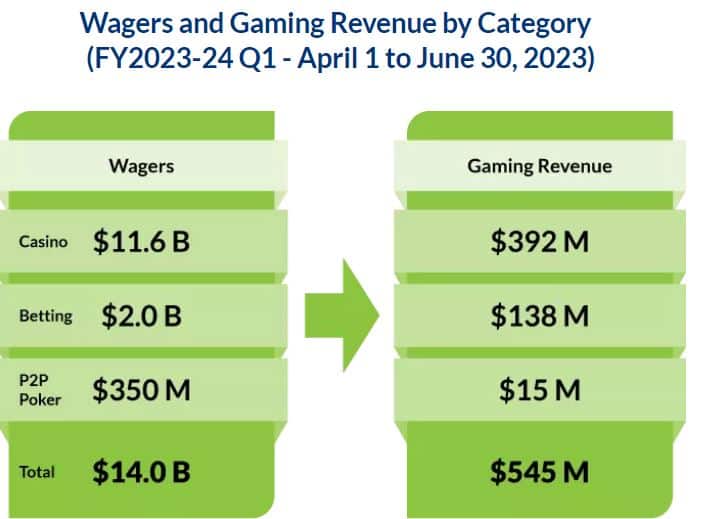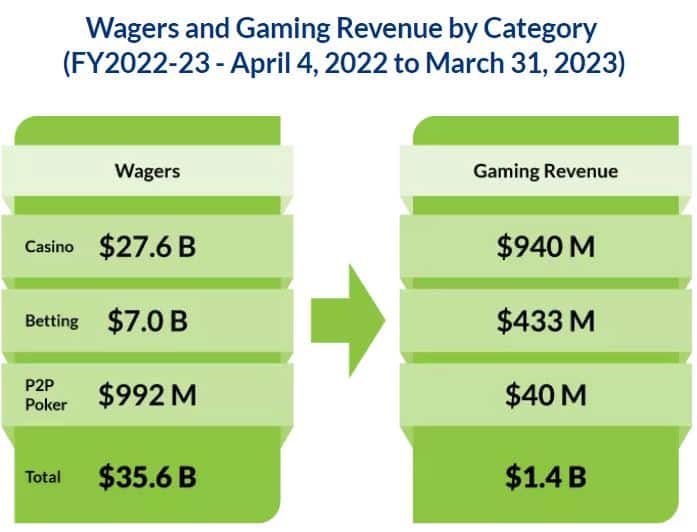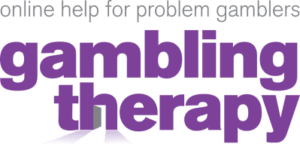
Gamblers in Ontario wagered approximately $14 billion and the market produced $545 million in total gaming revenue — from iCasino, online sports betting, and online poker — from April 1, 2023-June 30, 2023, according to iGaming Ontario’s 2023-24 Q1 market report released on Wednesday.
The $14 billion in total handle does not include promotional wagers, and the total gaming revenue of $545 million includes rake fees, tournament fees, and other fees across 46 total operators and 71 active gaming websites.
Regulators are also reporting that there were 920,000 active player accounts over the three-month period with an average monthly spend of $197 per user.

It’s important to note that these figures don’t include iGaming revenue from the Ontario Lottery and Gaming Corporation, which offers its own iCasino and retail and online sports betting platform. PROLINE+ was the first online sportsbook to launch in Ontario, shortly after Canada decriminalized single-event wagering on Aug. 27, 2021.
OLG was the only legal provider of Internet gaming prior to the launch of Ontario’s regulated iGaming market on April 4, and it still expects to maintain approximately 25%-30% of the market share despite increased competition from private operators, according to a recent Auditor General report. OLG is forecasting that its Internet gaming revenue will reach $530 million (excluding Internet lottery sales) by 2025/26.
Revenue breakdown finally provided by regulators
We finally have an idea of how Ontarians are allocating their wagering money after iGaming Ontario released a breakdown of revenue by category for the first time in its quarterly reports.
In Q1, casino games, including slots, live and computer-based table games and peer-to-peer bingo, accounted for nearly $11.6B (83%) of total wagers and $392M (72%) of gaming revenue.
Betting, including on sports, esports, and proposition and novelty bets, accounted for $2B (14%) of total wagers and $138M (25%) of gaming revenue.
Peer-to-peer (P2P) poker accounted for $350M (3%) of total wagers and $15M (3%) of gaming revenue.
Reporting revenue by category is a common practice in the United States, so it’s nice to see these numbers included in Ontario’s reports.
Unfortunately, iGaming Ontario still isn’t providing data on private operator market share, so we have no idea (aside from a few private research reports in the early days of the market) which online gaming operators are the most popular with Ontarians. However, it’s widely assumed across the industry that former grey-market operators in the province, like bet365, are still holding significant market share.

Regulators also provided a backdated breakdown of the revenue by category for the first fiscal year of operation of the market. The numbers don’t differ greatly from those reported in the last quarter, with iCasino really driving revenue.
Last year, casino games, including slots, live and computer-based table games as well as peer-to-peer bingo, accounted for nearly $28B (78%) of total wagers and $940M (67%) of gaming revenue.
Betting, including traditional sports, esports, and proposition and novelty bets, accounted for $7B (20%) of total wagers and $433M (31%) of gaming revenue last year.
P2P poker accounted for $992M (3%) of total wagers and $40M (3%) of gaming revenue last year.

The history of Ontario’s regulated iGaming market
Here are the figures from Ontario’s first year of regulated iGaming (April 4, 2022-March 31, 2023):
| Quarter | Total Wagers | Total Gaming Revenue | Operators | Active Player Accounts | Average Monthly Spend |
| 1 | $4.07B | $162M | 18 | 492K | $113 |
| 2 | $6.04B | $267M | 24 | 628K | $142 |
| 3 | $11.53B | $457M | 36 | 910K | $167 |
| 4 | $13.9B | $526M | 44 | 1.1M | $174 |
| Q1 2023/24 | $14B | $545M | 46 | $920K | $197 |
As you can see, the market growth from Q4 in the first year of operation to Q1 in the first quarter of this year is marginal. However, regulators stated at the Canadian Gaming Summit this summer that they had roughly 20 more operators still in the licensing process, which means the market could be poised to exhibit healthy growth as the year progresses and these operators go live in the province. We’re also likely to see more consolidation in the market throughout the fiscal year, so it’ll be interesting to see how everything plays out.
Operators in Ontario are expecting some drastic changes to advertising restrictions this summer, as the Alcohol and Gaming Commission of Ontario ponders tightening its restrictions. A decision from the regulator is expected shortly and a ban on using athletes and celebrities to promote iGaming products is likely.
There’s also a federal bill that has been tabled that is seeking to establish a national framework for sports betting advertising. Any further restrictions to advertising could impact future revenue growth.
